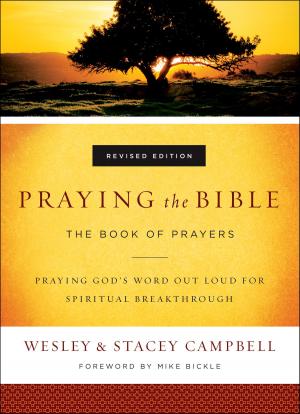Paul's Letters to the Thessalonian Christians: A Guide to Small Group Bible Study
Nonfiction, Religion & Spirituality, Bible & Bible Studies, Inspiration & Meditation, Christianity, Christian Life| Author: | Bruce Reed Pullen | ISBN: | 9781311298584 |
| Publisher: | Bruce Reed Pullen | Publication: | May 25, 2015 |
| Imprint: | Smashwords Edition | Language: | English |
| Author: | Bruce Reed Pullen |
| ISBN: | 9781311298584 |
| Publisher: | Bruce Reed Pullen |
| Publication: | May 25, 2015 |
| Imprint: | Smashwords Edition |
| Language: | English |
Jesus came preaching the message, “Repent,” that is, “Turn from what you are doing to doing what is right, for the Kingdom of God is at hand.” Paul had a similar message. During his ministry his message was consistent: when you are related to God through faith, you have certain responsibilities. Letters from Paul tells us about Paul, the message he proclaimed, and his advice for living a "life pleasing to God."
“If our ancient predecessors in the Christian faith had arranged the New Testament writings according to their dates of composition, 1 Thessalonians would stand at the beginning in place of the Gospel of Matthew. At least by the reckoning of most New Testament scholars, Paul wrote the letter we know as 1 Thessalonians around 51 A.D., which makes it the earliest Christian writing and, indeed, the earliest evidence we possess for the existence of Christianity.
“Despite the historic significance of 1 Thessalonians, however, it has been a neglected gem among the letters of Paul. . . .This very lack of familiarity makes 1 Thessalonians an ideal place to begin discovering, or perhaps rediscovering, the letters of Paul.” Beverly Roberts Gaventa.
Paul’s first letter to the Thessalonian church opens with a simple salutation, “From Paul, Silas, and Timothy” (1:1). This simple greeting, different from his other letters which cite his authority as an apostle, certainly suggests he felt a special closeness with the Thessalonian Christians. The inclusion of Silas and Timothy in the greeting indicates these three friends are a team, sharing their ministry just as today, even in the smallest congregation or study group, teams are formed and leadership is shared.
“Grace to you and peace (1:1)” was Paul’s signature greeting. He combined “Grace” which is derived from the Greek and “Peace” from the Hebrew as a way of greeting this diverse congregation. In one way or another, this signature greeting of grace and peace occurs in each of Paul's letters. Grace points to God, who, in Jesus, is the source of love in our lives. Peace indicates the quality of life that grows out of grace. Both are basic to the Christian lifestyle. Paul begins his letters with a subtle witness, “Grace and peace to you!” He also often uses the phrase as a benediction closing his letters.
After first traveling to Athens, then Corinth, Paul becomes concerned about the congregation he had left behind, so he sends Timothy back to encourage them and to then report back how they are doing. Overjoyed with what Timothy reports, Paul writes a letter praising, encouraging, and challenging them. He urges them to continue working, rejoicing, and growing in their love for Jesus and for one another for as they do, they are witnesses to others.
“We always give thanks to God for all of you and mention you in our prayers, constantly remembering before our God and Father your work of faith and labor of love and steadfastness of hope in our Lord Jesus Christ (1:2-3).”
If I have learned anything during my journey on planet earth, it is people need one another. I am independent by nature, but I know the presence of other people is essential in my life — caring people, helpful people, interesting people, friendly people, thoughtful people. These folks make the journey easier. God touches our lives through the people we meet along the way. Chances are you probably are a Christian because someone was a witness to you of the love of Jesus.
Jesus came preaching the message, “Repent,” that is, “Turn from what you are doing to doing what is right, for the Kingdom of God is at hand.” Paul had a similar message. During his ministry his message was consistent: when you are related to God through faith, you have certain responsibilities. Letters from Paul tells us about Paul, the message he proclaimed, and his advice for living a "life pleasing to God."
“If our ancient predecessors in the Christian faith had arranged the New Testament writings according to their dates of composition, 1 Thessalonians would stand at the beginning in place of the Gospel of Matthew. At least by the reckoning of most New Testament scholars, Paul wrote the letter we know as 1 Thessalonians around 51 A.D., which makes it the earliest Christian writing and, indeed, the earliest evidence we possess for the existence of Christianity.
“Despite the historic significance of 1 Thessalonians, however, it has been a neglected gem among the letters of Paul. . . .This very lack of familiarity makes 1 Thessalonians an ideal place to begin discovering, or perhaps rediscovering, the letters of Paul.” Beverly Roberts Gaventa.
Paul’s first letter to the Thessalonian church opens with a simple salutation, “From Paul, Silas, and Timothy” (1:1). This simple greeting, different from his other letters which cite his authority as an apostle, certainly suggests he felt a special closeness with the Thessalonian Christians. The inclusion of Silas and Timothy in the greeting indicates these three friends are a team, sharing their ministry just as today, even in the smallest congregation or study group, teams are formed and leadership is shared.
“Grace to you and peace (1:1)” was Paul’s signature greeting. He combined “Grace” which is derived from the Greek and “Peace” from the Hebrew as a way of greeting this diverse congregation. In one way or another, this signature greeting of grace and peace occurs in each of Paul's letters. Grace points to God, who, in Jesus, is the source of love in our lives. Peace indicates the quality of life that grows out of grace. Both are basic to the Christian lifestyle. Paul begins his letters with a subtle witness, “Grace and peace to you!” He also often uses the phrase as a benediction closing his letters.
After first traveling to Athens, then Corinth, Paul becomes concerned about the congregation he had left behind, so he sends Timothy back to encourage them and to then report back how they are doing. Overjoyed with what Timothy reports, Paul writes a letter praising, encouraging, and challenging them. He urges them to continue working, rejoicing, and growing in their love for Jesus and for one another for as they do, they are witnesses to others.
“We always give thanks to God for all of you and mention you in our prayers, constantly remembering before our God and Father your work of faith and labor of love and steadfastness of hope in our Lord Jesus Christ (1:2-3).”
If I have learned anything during my journey on planet earth, it is people need one another. I am independent by nature, but I know the presence of other people is essential in my life — caring people, helpful people, interesting people, friendly people, thoughtful people. These folks make the journey easier. God touches our lives through the people we meet along the way. Chances are you probably are a Christian because someone was a witness to you of the love of Jesus.















